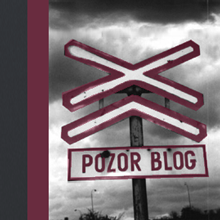
When the definitive history of the eurozone crisis is written Tuesday’s vote in the Slovak parliament will probably merit a line or just a footnote. In contrast, last month’s decision of the German parliament to back the bailout will no doubt take up a paragraph or a page. If Germany had rejected the bailout we would have returned to square one, but Slovakia’s ‘no’ merely delays the decision by a few days.
Markets move quickly, much more quickly than politicians. The euro fell on news of the fall of the Radicova government, but will in all probability bounce back in the coming days. Whilst there would not be that much enthusiasm for a return to power of Robert Fico in some international circles, there would be little fear; just a hope he would not jump into the coalition bed with Slota again.
In contrast, Richard Sulik, whom few beyond the small band of political scientists who follow Slovakia had heard of before last year’s elections, has become well known in recent weeks, even being the subject of a prominent profile in the eurocrats’ favourite weekly, the European Voice.
 Oscar Wilde once wrote that there is only one thing worse than being talked about and that is not being talked about. But in international politics that isn’t always the case. Slovakia was prominent in the coverage of the three most influential dailies in Europe on Wednesday: Le Monde, the Financial Times and the Frankfurter Allgemeine Zeitung. Le Monde, for instance, bemoaned the political game being played in Slovakia, wondering in a linked article whether France’s AAA rating will survive the crisis. Sulik’s actions even caused ripples across the Atlantic where Slovakia was also the subject of articles in the New York Times and Washington Post.
Oscar Wilde once wrote that there is only one thing worse than being talked about and that is not being talked about. But in international politics that isn’t always the case. Slovakia was prominent in the coverage of the three most influential dailies in Europe on Wednesday: Le Monde, the Financial Times and the Frankfurter Allgemeine Zeitung. Le Monde, for instance, bemoaned the political game being played in Slovakia, wondering in a linked article whether France’s AAA rating will survive the crisis. Sulik’s actions even caused ripples across the Atlantic where Slovakia was also the subject of articles in the New York Times and Washington Post.
There is some sympathy in international circles for Sulik’s position on the euro. The bailout is an imperfect mechanism designed to ensure the Greek mismanagement of their fiscal policy does not spread like a virus across the southern periphery of the Union. Few think the latest bailout is any more than the latest sticking plaster rather than a definitive solution. Sulik’s decision, however, to allow the Radicova government to fall so he has a clear conscience in front of his children, has not led to Sulik being hailed a hero apart from in the Daily Telegraph; it merely highlights both the weakness of eurozone governance and the willingness of some domestic politicians to risk the collapse of a coalition over a bailout package which will soon be superseded. It also casts doubt on the reliability of Slovak politicians.
Since the 1990s when Madeline Albright labeled Slovakia a ‘hole in the map of Europe’, the country’s image has improved markedly. Sulik’s decision and the fall of the Radicova government may soon be forgotten by international markets and journalists, but small states rarely appear in the international spotlight. The few occasions such states receive attention tend to shape the image of that country. Slovak politicians would be well advised to remember that when they play their domestic games.
Tim Haughton
SAIS Johns Hopkins University & Birmingham University
